Linux desktop environment contains a bundle of applications created in a manner to work with one another and give a consistent User Experience(UX). A tremendous sum of Linux clients inclines toward working on the OS through the terminal of the command line, but you will also be able to use the graphical UI rather than using the terminal. Since there is no particular best Linux desktop environment as it depends upon distinctive components like simple utilization, memory consumption, compatibility, and usefulness. Every user has their own requirements, so choose the best fit for your own.
In this article, we list the top 10 best Linux desktop environments for the ease of users.
Top 10 Linux Desktop Environments
There are numerous Linux desktop environments that give a consistent user experience and can be easily accessible in the market. This article will provide a thorough analysis of the top 10 best Linux desktop environments, containing both open source and commercially available.
Recommend – Installation of Desktop Environment on Ubuntu
1. GNOME
The most standard Linux desktop environment is GNOME. GNOME is the default environment of various platforms like Fedora etc. Whether it is touch-based devices or traditional PCs, GNOME design suits both at the same time. A single board similar to the mobile device is fixed on top of the screen. Functioning over the Activities Overview rather than a dock or window list, these overviews display different apps, open the software, and numerous desktops.
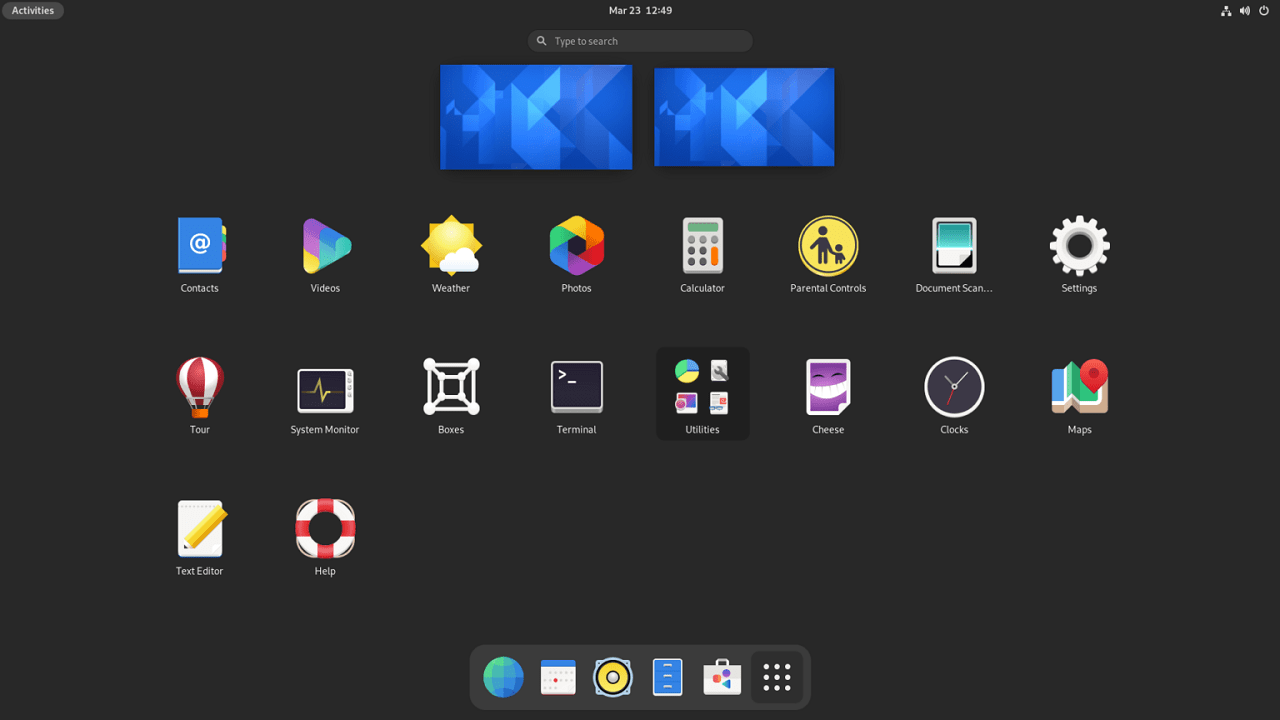
Main Features:
- User-friendly user interface
- Has the ability to modify their functionalities using shell extension of GNOME
- Extremely customizable
2. KDE Plasma
KDE is another foremost prevalent Linux desktop environment. The standard applications feature comes with every desktop interface. Under the KDE applications list, KDE maintains a set of applications, this can be accessed over “apps.kde.org”. The set comprises applications of all categories, from development tools and games to graphics and firewalls/security.
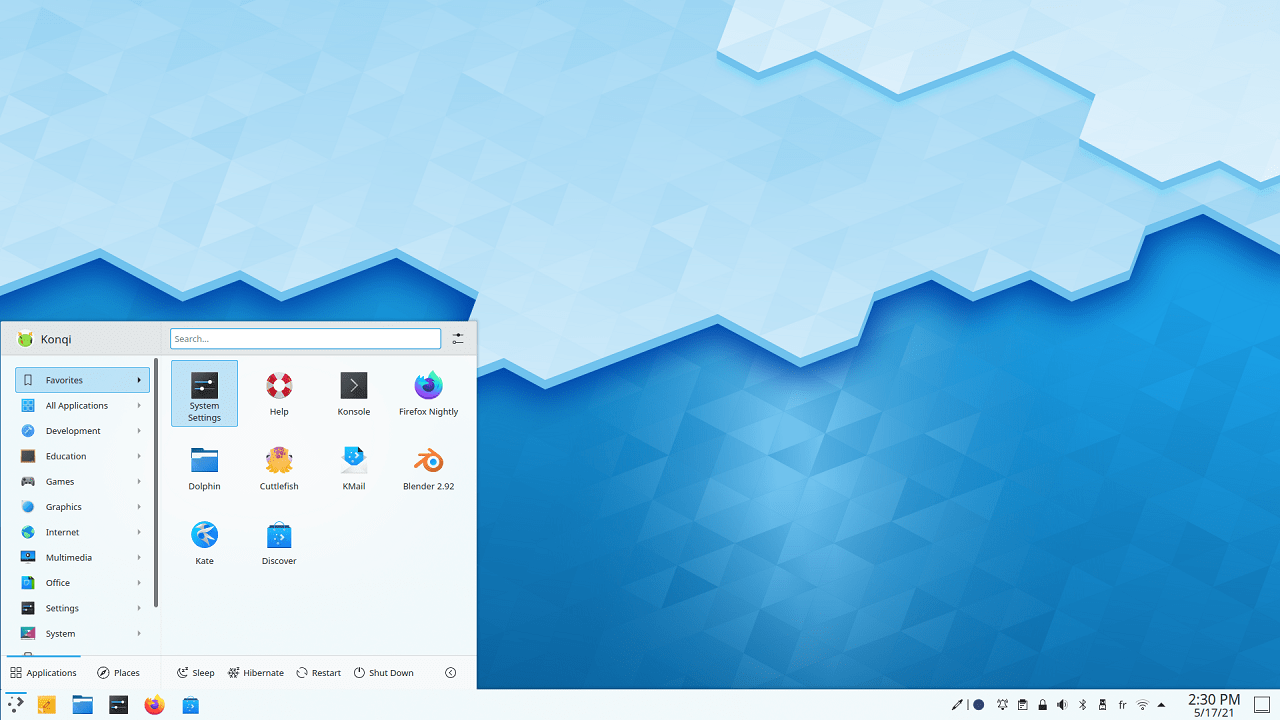
Main Features:
- It is lightweight and extremely customizable.
- Easy to use
- Contains useful built-in tools
3. Unity
Unity is known as “Graphical User Interface” and is used for the GNOME environment. The project of Unity was begun by “Mark Shuttleworth and Canonical”, as these are the producers of the most popular Linux distribution i.e. Ubuntu. The aim of Unity is to offer desktop or netbook clients a steady, rich experience of computing.
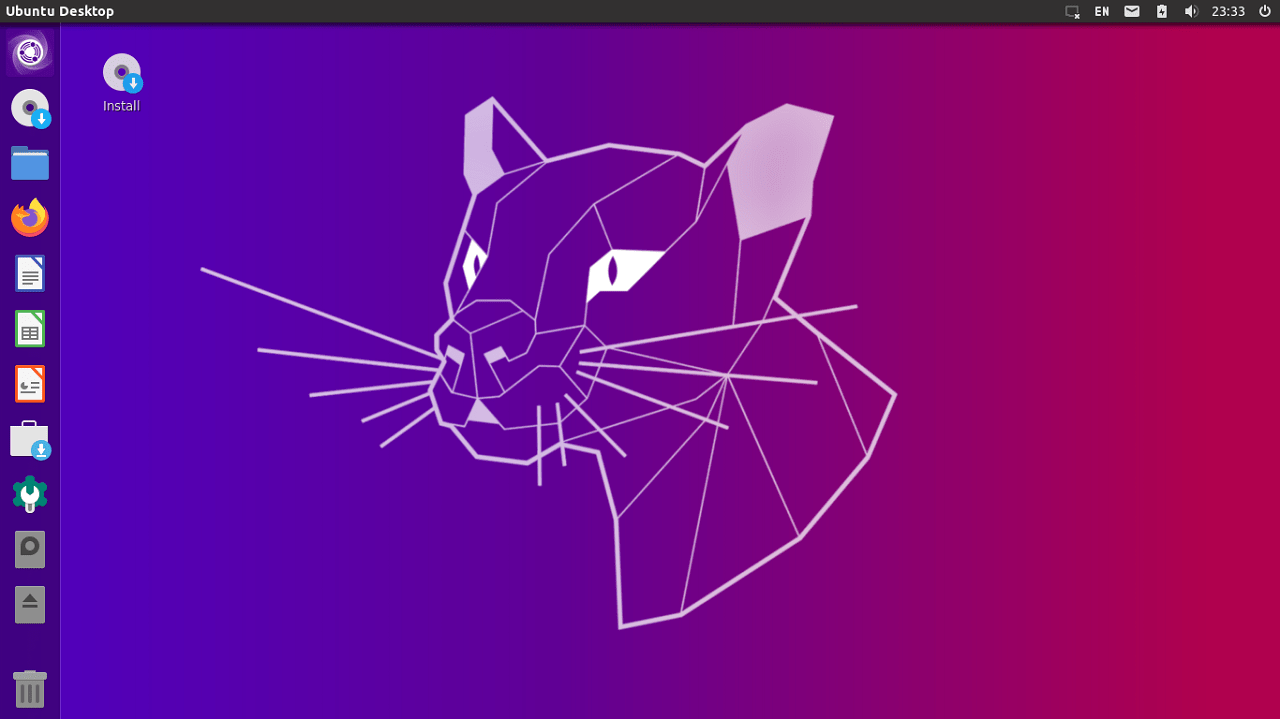
Main Features:
- It has a file manager as well as a window manager named Nautilus, Compiz respectively.
- It has a lens in order to send search queries to scope.
- It also gives information on various settings of the system i.e. power, sound, brightness, active session, etc.
4. MATE
The extension of GNOME 2 is MATE, which is quite an instinctive and likable desktop interface. MATE is not only operating on Linux but it also entertains many different Unix-like systems. Caja file manager, Mate terminal, and others are the default applications in MATE. Developers of MATE created applications from scratch for the environment of MATE. However, like Linux Mint, developers of MATE have additionally forked numerous main applications of GNOME in order to coordinate with MATE appropriately. X-Apps is also one of the applications used in MATE.
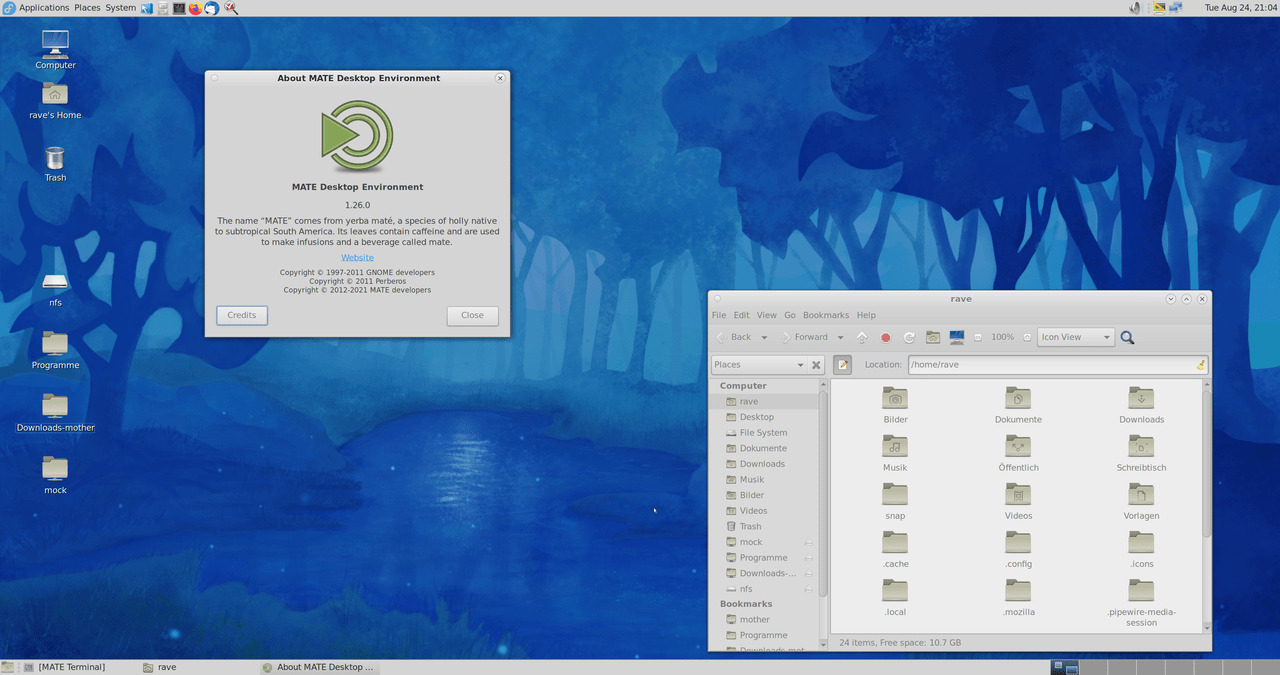
Main Features:
- User-friendly
- It is a lightweight and fast environment
5. Cinnamon
The most commonly used variant of Linux and Linux Mint is Cinnamon. While the interface was suffering from drastic changes, Cinnamon began as a fork of GNOME. The appealing feature of Cinnamon is the traditional touch which helps long-time Windows users at ease. The attraction for users is the familiarity and friendly user interface. This makes Cinnamon a mixture of innovative ideas with a traditional touch in setups making it smooth for users yet carrying modern facilities.
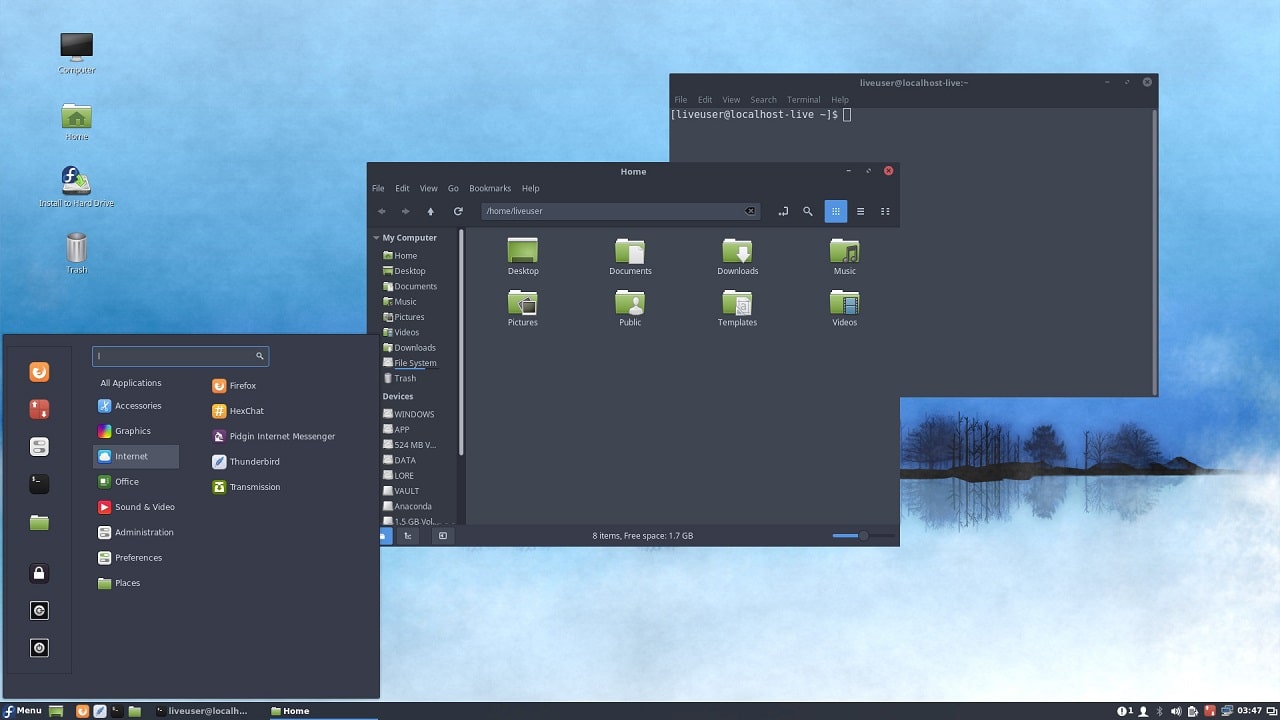
Main Features:
- Easy to use and customizable
- Polished UI
- Snappy and fast
6. Budgie
Next, we are talking about budgie which is another desktop environment created through the project Solus. Solus utilizes package manager i.e “eopkg”. GNOME can also be used to execute a Budgie desktop environment on old as well as modern machines.
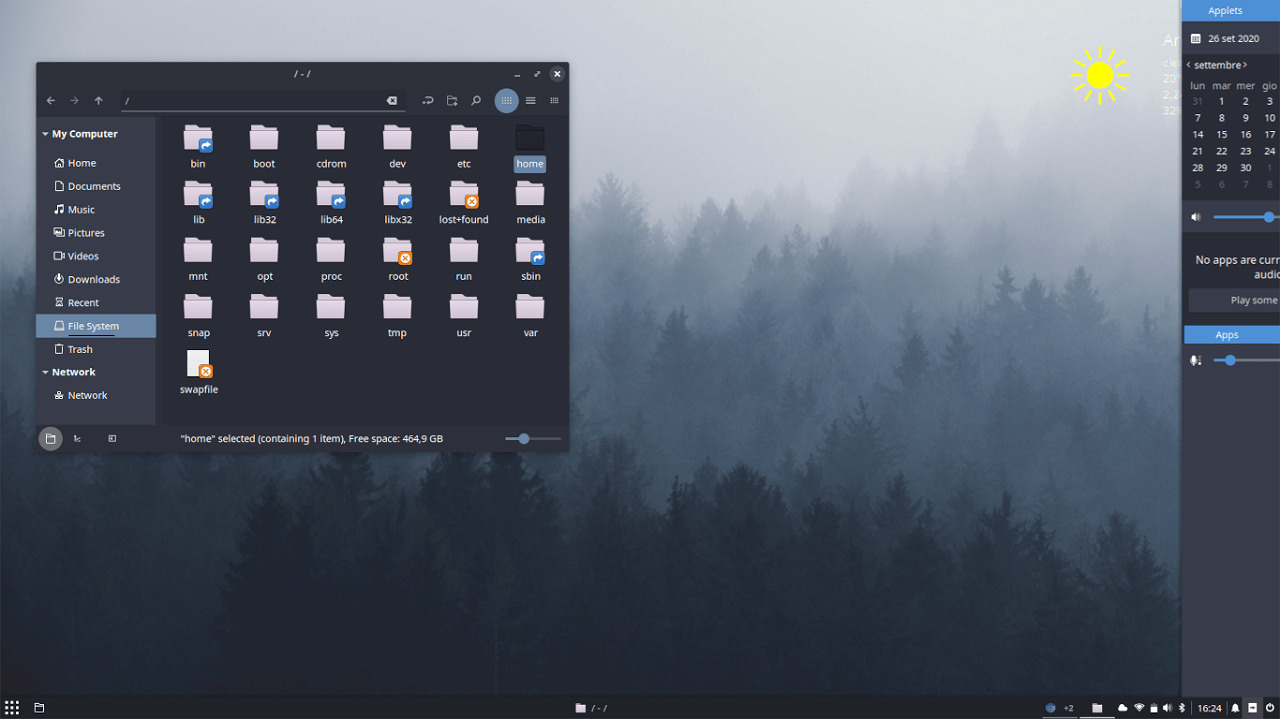
Main Features:
- It has a modern and elegant user interface
- Organizes windows easily
- Efficient performance in general tasks
- Use less memory
7. LXQT
LXQT is the new version of LXDE used for cloud servers and old hardware due to minimum consumption of RAM and CPU. It is the replacement of LXDE. LXQT is the default environment on various distros such as Lubuntu and a few more.
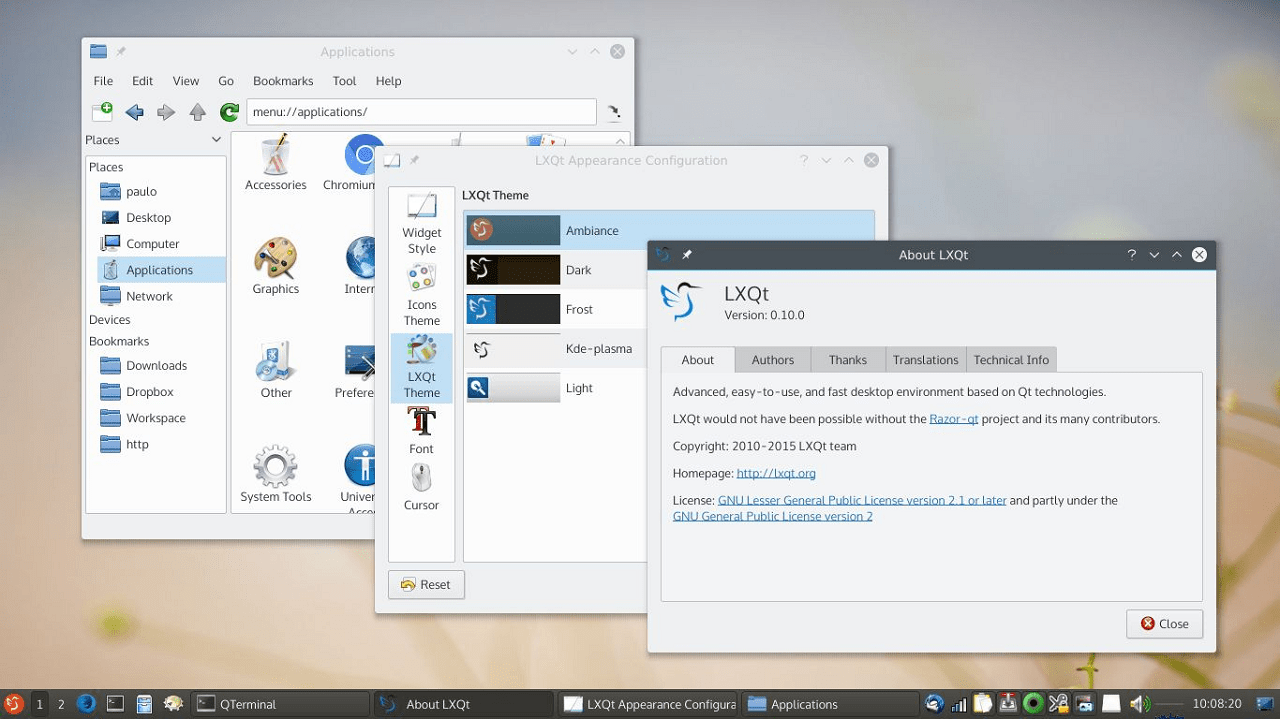
Main Features:
- It has the ability to support various languages
- It is an open-source, most simple desktop environment.
- Fast and lightweight.
- Supports components of saving integrated energy and also supports numerous shortcuts of the keyboard.
8. XFCE
Xfce supports considerable Linux distributions. It is a lightweight desktop environment but gives full-featured UX. Xfce does not support advanced customizations but it is the best desktop environment in terms of performance-centric.
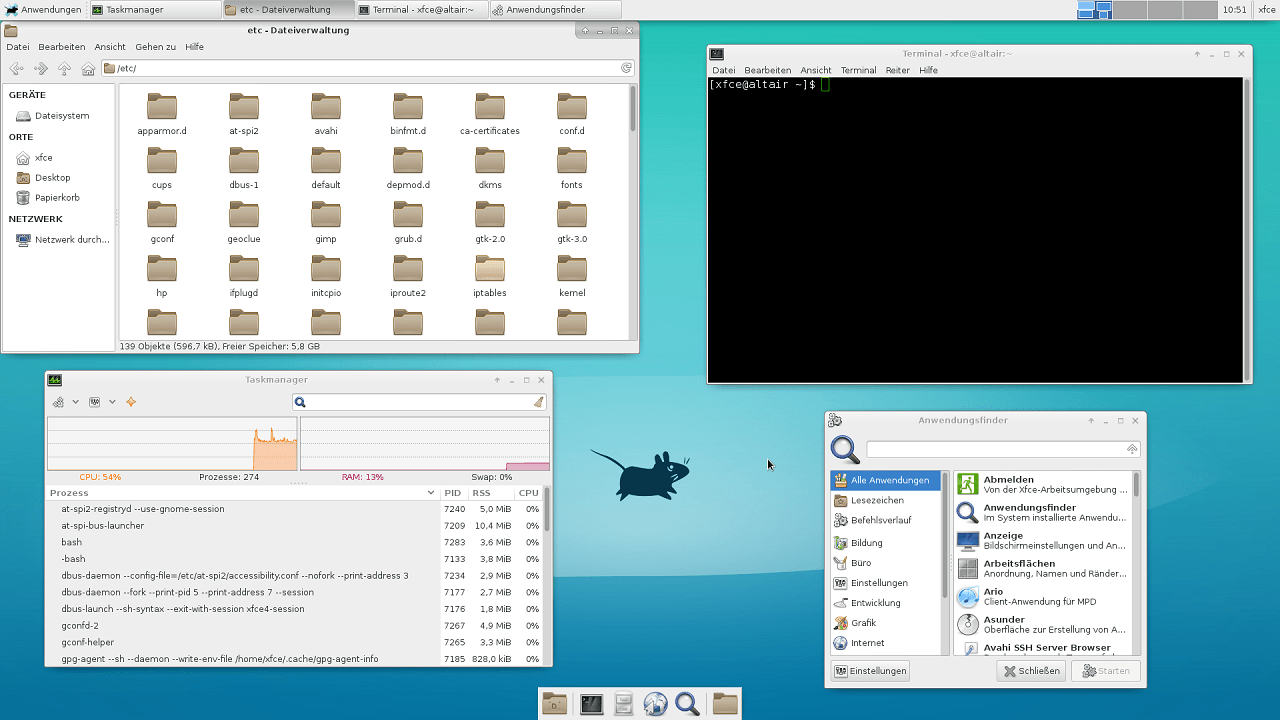
Main Features:
- Most simpler open-source desktop environment
- Easily adaptable in old machines/hardware.
- It has a file manager as well as a window manager named Thunar, Xfwm respectively.
- It also has a desktop manager in order to put background images, icons, etc.
- Fast, lightweight, and efficient on resources.
9. Deepin
A modest, yet elegant desktop environment for Linux is Deepin. The good thing is, that it works with other numerous Linux in-line distributions like Arch Linux, Manjaro, and much more. Moreover, it is equipped with a carefully designed and easy-to-use interface making it most productive. Besides, the standard system makes with fewer configurations the ultimate user-friendly system. Major configurations are created from a pop-up panel from the outside. However, like the Pantheon desktop environment, users can also execute their applications from the dock which is at the bottom of the screen.
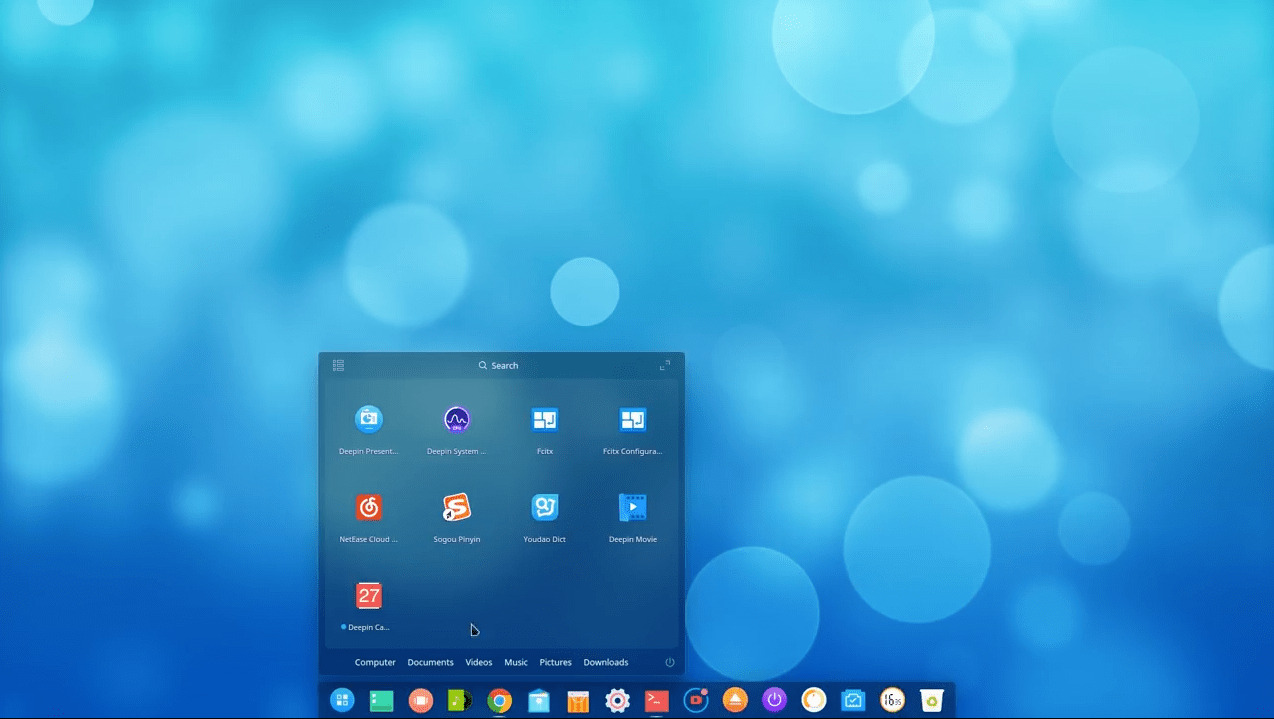
Main Features:
- It contains polished animations and eye candy UI.
- User-friendly
- Reliable and safe
10. LXDE
LXDE is another lightweight desktop environment. As it keeps low usage of resources, it utilizes minimal memory as compared to other desktop environments. However, LXDE is best suited for cloud computers that have old specifications like MIDs, netbooks, or old hardware. LXDE saves energy, and also supports keyboard shortcuts and multi-language.
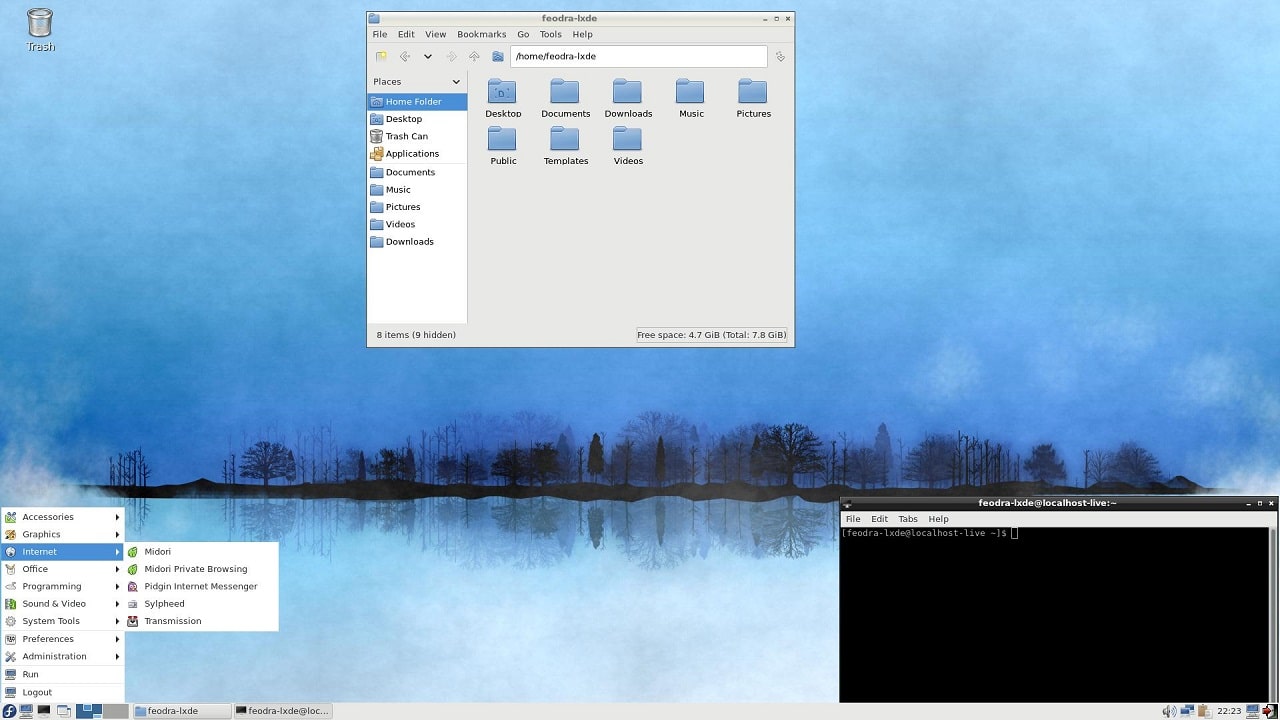
Main Features:
- Faster in performance and lightweight
- Energy-efficient environment
- Customizable for old hardware
Conclusion
To wrap up, we have discussed the list of the top 10 best Linux Desktop environments. There are hundreds of desktop environments that have different features and function differently. All of these environments are the best and ranked higher according to users. It doesn’t matter whether you’re a newbie or a superuser, you can find a suitable desktop environment for you from the list given above. You can choose any desktop environment that is suitable according to your needs.

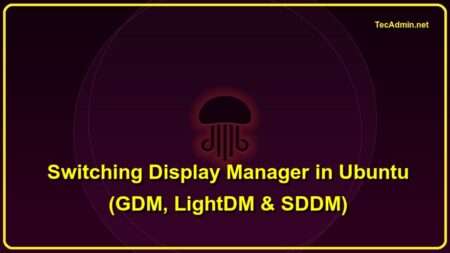
5 Comments
Gnome is ABSOLUTE garbage… because it is EXTREMELY NOT customizable.
I’m sticking w/ MATE.
Your forgot to mention one – Trinity.
Gnome? really? gnome sucks, i hate it. it’s so laggy and slow.
Give Gnome a chance though, some people really do prefer it for its ease of use
Give it a try. Yes at first Gnome is unfamiliar. But with a bit practice it works very well and smooth.